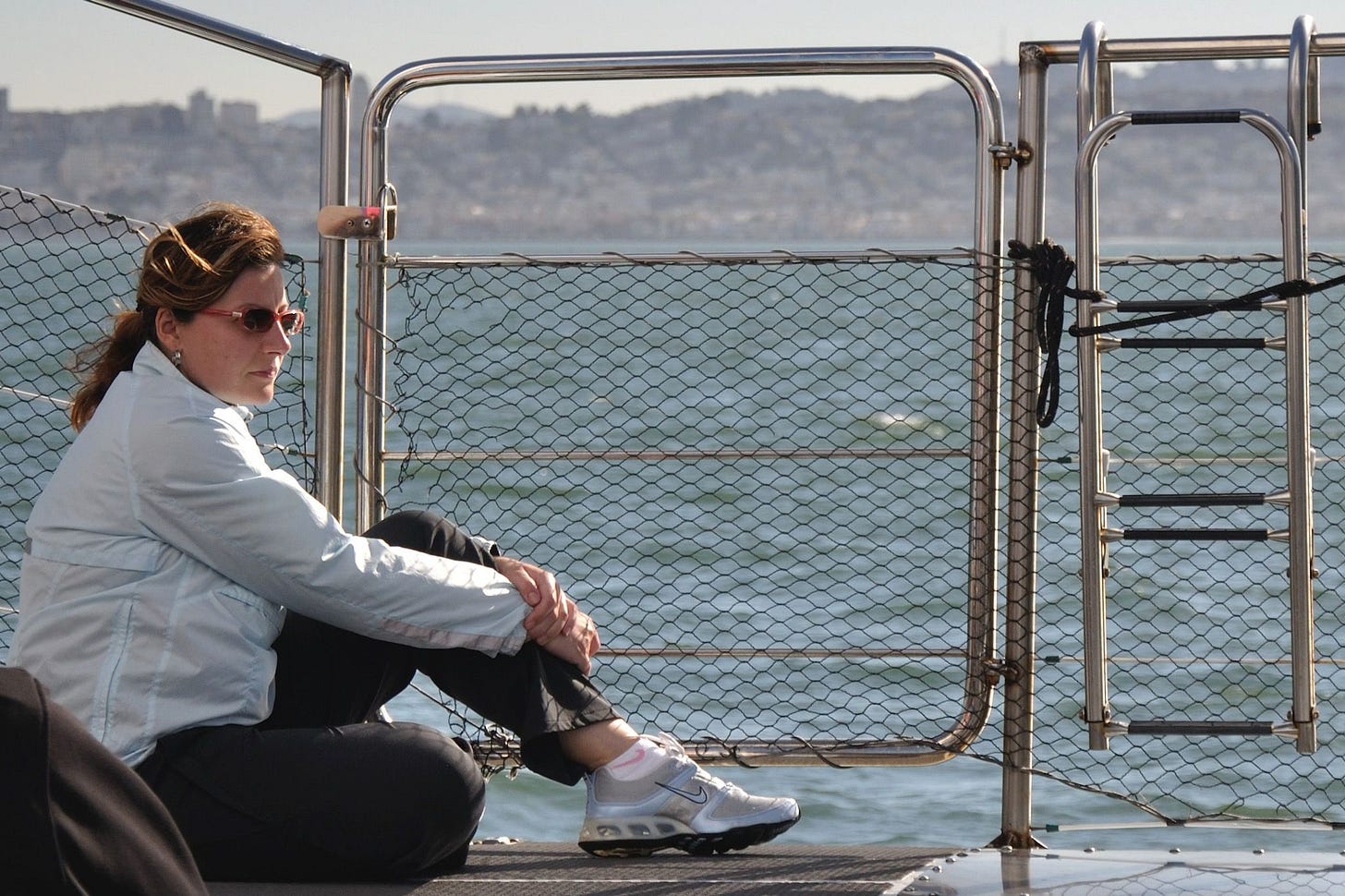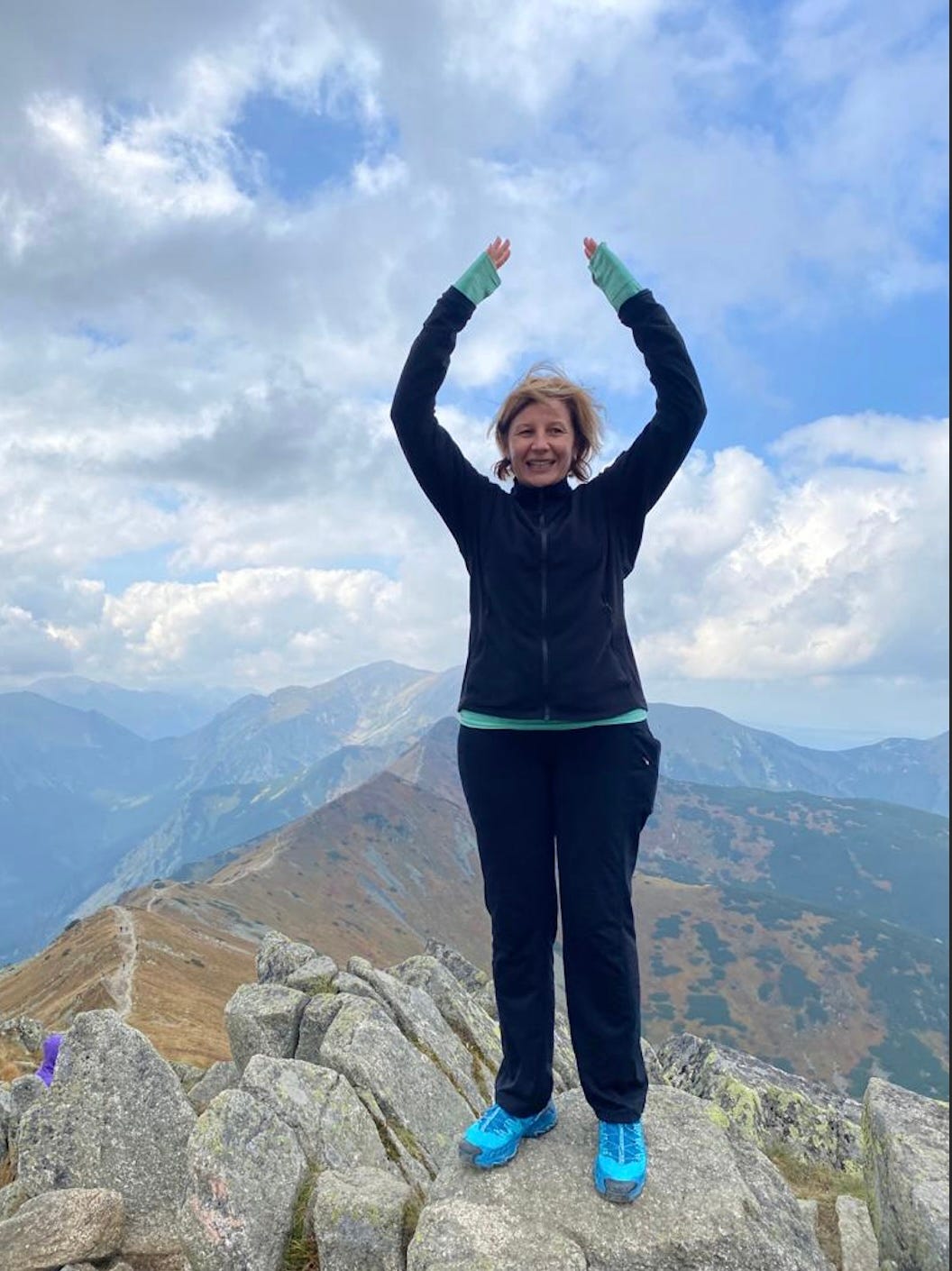Beyond the Scars
Turning challenges into growth opportunities
The faint scent of iodine still takes me back.
Back to the sterile chill of a Polish hospital, the hushed whispers, the fear that clung to the air like a shroud.
I was fourteen, caught in the long shadow of Chernobyl, watching as other children received their protective iodine shots.
My mother, her face etched with worry, wasn't eligible. In that moment, the world felt fragile, life terrifyingly uncertain.
That experience, though harrowing, was just one chapter in a story filled with unexpected twists and turns.
From a childhood illness that threatened to confine me to a wheelchair to the abrupt departure of my father, leaving a void in our lives and a crumpled $50 bill as our starting point in America, challenges have been a constant companion.
But here's the thing about scars, both the physical and the invisible ones etched on our souls: they tell a story.
They speak of resilience, of battles fought and lessons learned. They are a testament to our capacity to endure, adapt, and ultimately, to grow.
The Wheelchair That Never Was
"You will NEVER walk again." The doctor's words, cold and clinical, hit me like a physical blow. I was twelve, and my dreams of dancing and climbing mountains seemingly dashed. But within me, a defiant spark ignited. I refused to accept that verdict.
Three years of grueling physical therapy followed. The pain was excruciating—a constant throb that echoed through my days and nights. There were moments of doubt, tears shed in frustration, and the bitter taste of loneliness during a year of homeschooling. But I clung to the image of myself walking, dancing, and living.
And I did. I proved that doctor wrong. I walked, I danced, and I even climbed mountains again. The experience taught me the power of mindset and the unwavering strength of the human spirit when faced with seemingly insurmountable odds. It was a crash course in resilience, a lesson I would carry with me through future storms.
Three Little Experts Give a Crash Course in Resilience
Imagine landing in America, a 21-year-old clutching a worn dictionary and a $50 bill that felt as thin as a whisper.
My grand adventure began with a baptism by fire: learning English from my three young charges, aged 4, 6, and 8.
Those kids were my teachers, my tormentors, and my saviors all rolled into one. Their laughter was infectious, and their patience was surprisingly endless. They corrected my pronunciation with the ruthless honesty only children possess, turning my grammar faux pas into hilarious games. Through them, I not only learned English but also the universal language of laughter, play, and connection.
Nannying became my unexpected training ground. It taught me adaptability, quick thinking, and the art of communicating across language barriers. It forced me to step outside my comfort zone, to embrace the chaos and find joy in the unexpected.
The Algorithm of Adaptation
My dream was to be a psychologist, to delve into the intricacies of the human mind. But the job market, it seemed, had other plans. Rejection letters piled up, each one a tiny pinprick to my confidence. The taste of disappointment was bitter; the feeling of being lost was disorienting.
Then came the twist of fate. A chance encounter led me to the world of software development. Suddenly, I was immersed in databases, algorithms, and lines of code. DataStage became my new reality, a world of logic and precision that felt a million miles away from the therapy couch.
Imposter syndrome lurked, whispering doubts in my ear. I was the only woman in a room full of male developers, a sea of unfamiliar faces and technical jargon. But something inside me—that same stubborn spark that had fueled my recovery years ago—pushed me forward.
I learned to code. I mastered DataStage faster than anyone else. I brought a unique perspective to the team, a blend of analytical thinking and human understanding that proved invaluable. This unexpected career detour taught me that adaptation isn't just about survival; it's about discovering hidden strengths and forging new paths to success.
The Sweet Taste of Success, After a Diet of Ramen Noodles
Chicago, the city of dreams, had become the city of ramen noodles and silent screams. Losing my dream job felt like falling into a dark abyss. The world was a blur of muted colors, the constant hum of "what now?" a relentless soundtrack to my days.
Pride, that stubborn beast, kept me from taking just any job. Money dwindled, and those Godiva chocolate-covered strawberries in the shop window became a symbol of a life I could no longer afford.
But even in the depths of despair, there was a glimmer of hope. Rock bottom, I realized, is also solid ground. It's a place to rebuild, to reassess, to redefine what truly matters.
I swallowed my pride, took on odd jobs, and slowly, painstakingly, rebuilt my life. The taste of those strawberries, when I could finally afford them again, was sweeter than ever, a reminder that resilience can lead us back to the things we cherish most.
The Currency of Resilience
Looking back, I see a thread of resilience woven through my life. It's the currency I've used to navigate challenges and turn setbacks into opportunities for growth. It's the voice that whispers, "You've got this," when the world feels like it's crashing down.
Resilience isn't about avoiding pain or pretending that challenges don't exist. It's about acknowledging the hurt, the fear, the doubt, and then choosing to move forward. It's about finding the strength to adapt, to learn, to grow, even when the path ahead is uncertain.
The scars remain, a reminder of battles fought and won. But they no longer define me. They've taught me the importance of adaptability, the power of perspective, and the resilience of the human spirit.
Here are a few key lessons I've learned along the way:
Embrace the detours. Life rarely goes according to plan. It's in those unexpected twists and turns that we often discover hidden strengths and new opportunities.
Find strength in vulnerability. Don't be afraid to acknowledge your struggles, to seek support, and to allow yourself to feel the full spectrum of emotions. Vulnerability is not weakness; it's a gateway to connection and growth.
Reframe challenges as opportunities. Every obstacle, every setback, is a chance to learn, adapt, and emerge stronger.
Cultivate a growth mindset. Believe in your ability to learn and evolve. Embrace challenges as opportunities to expand your skills and knowledge.
Practice self-compassion. Be kind to yourself, especially during difficult times. Acknowledge your resilience and celebrate your progress.
Beyond the scars, beyond the challenges, lies a rich collection of strength, resilience, and growth. It's a collection of experiences, each one contributing to the intricate beauty of a life lived fully. And it's a reminder that even in the face of adversity, we have the power to turn our scars into sources of strength, our challenges into opportunities for growth.
Join the Connected Community Project. We're a collective of dreamers, doers, and innovators who believe in the power of connection. A creativity incubator overflowing with brilliant minds like yours.
👉 If you enjoy reading this post, feel free to share it with friends! Or feel free to click the ❤️ button on this post so more people can discover it on Substack.









Your story of resilience is beautiful! Your words and your life have inspired me. Keep going and doing amazing, meaningful things!
Beautiful. And just what I needed to hear today!